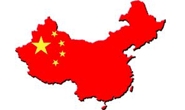Government/Policy

January 13, 2020
AAM: China Deal “Completely Inadequate”
Written by Sandy Williams
The Alliance for American Manufacturing is more than a little skeptical that the China Phase One trade agreement will have value for American workers, calling it “completely inadequate” in a letter to President Trump.

“For far too long, seemingly endless dialogue with China proved that polite requests to curtail its predatory, state-driven industrial policies do not yield meaningful results. Left to its own devices, China has repeatedly demonstrated that it is unwilling to hold up its end of the bargain,” added Paul.
AAM gave credit to the Trump administration for recognizing that the U.S. and China have a flawed economic relationship, and for taking strong measures to encourage negotiations.
China’s “predatory economic behavior” has resulted in a $5 trillion bilateral goods trade deficit, including a record $419.2 billion in 2018, noted Paul, along with the loss of 54,000 manufacturing facilities and 3.7 million jobs. “These trends are unsustainable and put the future of our economy, national security, and country at risk,” he added.
“While the phase one deal falls short, the use of tariffs under Section 301 of the Trade Act of 1974 have proven to be an effective and appropriate tool to trigger negotiations with China,” Paul wrote.
“American workers and U.S. manufacturing companies need a deal that is comprehensive, specific, enforceable and backed by strong and automatic penalties if Beijing fails to live up to its words – as has repeatedly been the case under previous administrations of both political parties. It is essential that we maintain pressure on China, using the leverage of remaining Section 301 tariffs to immediately resume negotiations on a phase two agreement.”







